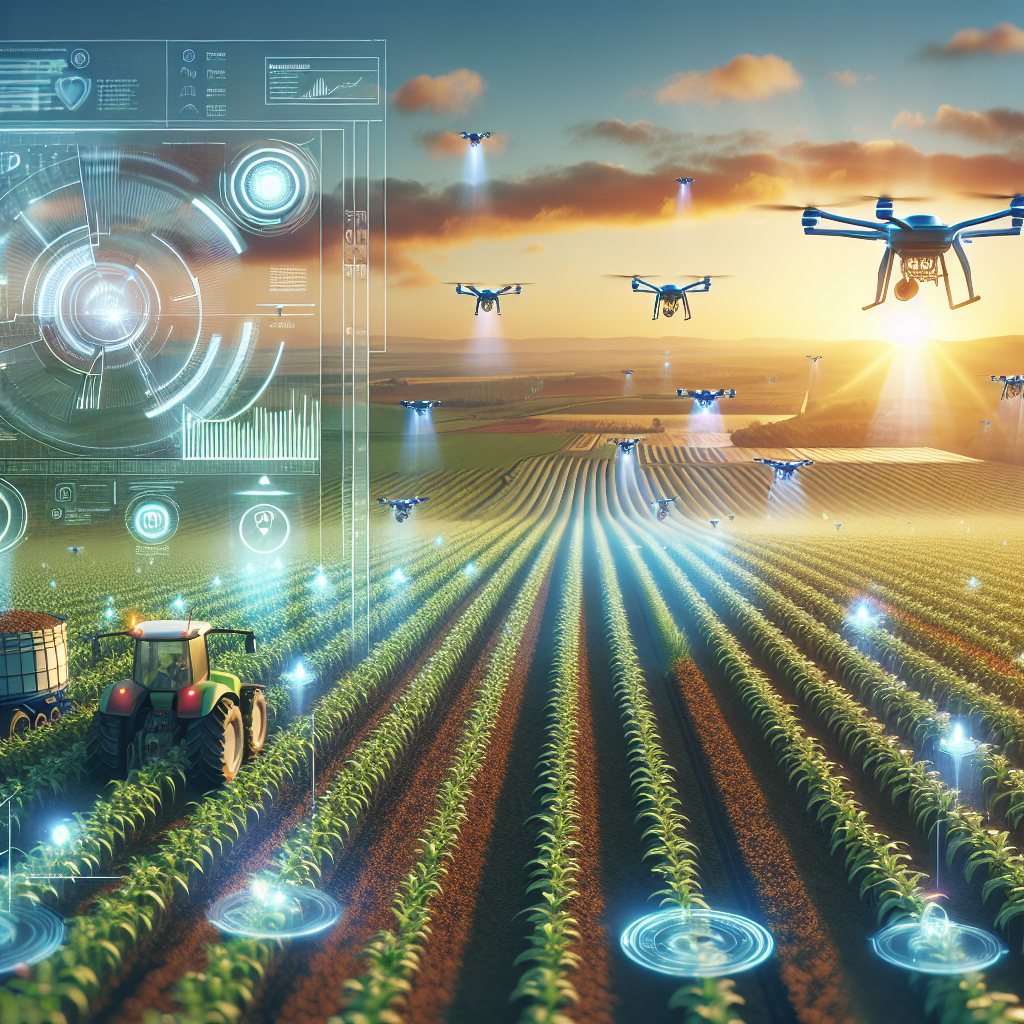The Role of AI in Precision Agriculture
Precision agriculture, also known as precision farming or precision ag, is a farming management concept that uses technology to optimize the efficiency and effectiveness of agricultural practices. This approach involves the use of data analytics, sensors, robotics, GPS technology, and other advanced tools to monitor and control various aspects of crop production. One of the key technologies driving the advancement of precision agriculture is artificial intelligence (AI). AI has the potential to revolutionize the way we farm by enabling farmers to make more informed decisions and optimize their operations.
AI in precision agriculture can be used in various ways, such as crop monitoring, field mapping, predictive analytics, and autonomous machinery. By harnessing the power of AI, farmers can improve their yield, reduce waste, and minimize the use of resources like water and pesticides. In this article, we will explore the role of AI in precision agriculture and its potential impact on the future of farming.
Crop Monitoring
One of the key applications of AI in precision agriculture is crop monitoring. AI-powered sensors and drones can collect data on various aspects of crop health, such as temperature, moisture levels, and nutrient content. This data can then be analyzed using machine learning algorithms to identify patterns and trends that can help farmers make informed decisions about irrigation, fertilization, and pest control.
For example, AI can help farmers detect early signs of disease or pest infestations in their crops, allowing them to take timely action to prevent widespread damage. By monitoring crops in real-time, farmers can also optimize their watering and fertilization schedules, ensuring that plants receive the right amount of nutrients at the right time.
Field Mapping
AI can also be used to create detailed maps of farmland, allowing farmers to identify areas that need special attention, such as soil erosion or nutrient deficiencies. By analyzing satellite imagery and drone footage, AI algorithms can generate accurate maps that show the topography, soil composition, and vegetation cover of a field.
These maps can help farmers plan their planting and harvesting schedules more effectively, as well as identify areas where crops are not performing as expected. By analyzing these maps, farmers can make data-driven decisions about where to apply fertilizers, pesticides, or other inputs to maximize yield and minimize waste.
Predictive Analytics
Another important application of AI in precision agriculture is predictive analytics. By analyzing historical data on weather patterns, soil conditions, and crop performance, AI algorithms can forecast future outcomes and help farmers anticipate potential risks and opportunities.
For example, AI can predict the likelihood of a drought or a pest outbreak based on historical weather data and current crop conditions. By providing early warnings and recommendations, AI can help farmers mitigate risks and take proactive measures to protect their crops.
Autonomous Machinery
AI-powered autonomous machinery is another key technology that is transforming the way farmers work. Autonomous tractors, drones, and robots can perform a variety of tasks, such as planting, spraying, and harvesting, with minimal human intervention. These machines are equipped with sensors and AI algorithms that enable them to navigate fields, detect obstacles, and make real-time decisions based on the data they collect.
By using autonomous machinery, farmers can increase their efficiency, reduce labor costs, and improve the quality of their crops. These machines can work around the clock, in any weather conditions, and with greater precision than human operators, leading to higher yields and lower production costs.
FAQs
1. How does AI help farmers make better decisions?
AI helps farmers make better decisions by analyzing data from sensors, drones, and other sources to identify patterns and trends that can inform their actions. By providing timely insights and recommendations, AI enables farmers to optimize their operations and maximize their yield.
2. What are the benefits of using AI in precision agriculture?
The benefits of using AI in precision agriculture include increased yield, reduced waste, lower production costs, and improved sustainability. By leveraging AI technology, farmers can enhance their decision-making processes, optimize their resource allocation, and mitigate risks more effectively.
3. How can farmers adopt AI in their operations?
Farmers can adopt AI in their operations by investing in AI-powered tools and technologies, such as sensors, drones, and autonomous machinery. They can also partner with technology companies or research institutions to develop customized solutions that meet their specific needs.
4. What are the challenges of implementing AI in precision agriculture?
Some of the challenges of implementing AI in precision agriculture include the high cost of technology, the lack of technical expertise among farmers, and concerns about data privacy and security. To overcome these challenges, farmers need to receive training on how to use AI tools effectively and comply with regulations related to data protection.
In conclusion, AI has the potential to revolutionize the way we farm by enabling farmers to make more informed decisions, optimize their operations, and improve their yield. By harnessing the power of AI in precision agriculture, farmers can increase their efficiency, reduce waste, and minimize the use of resources like water and pesticides. As technology continues to evolve, AI will play an increasingly important role in shaping the future of farming and ensuring food security for generations to come.

